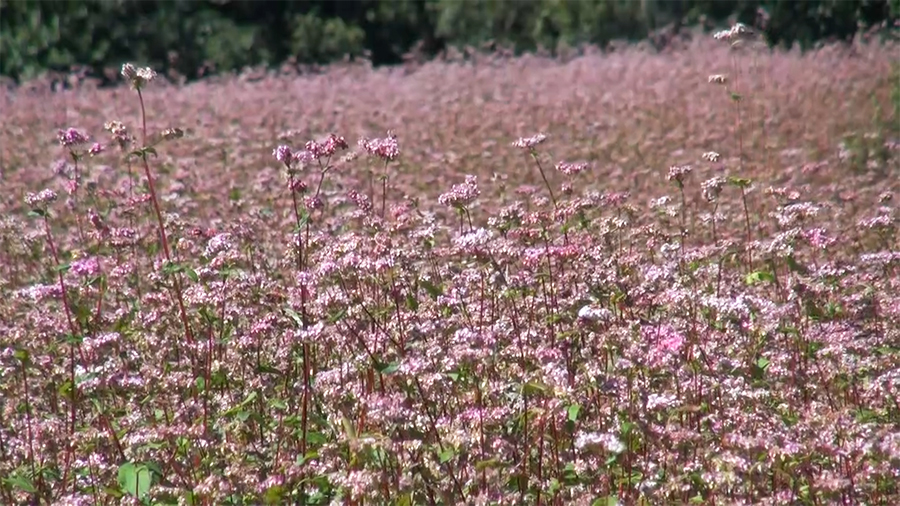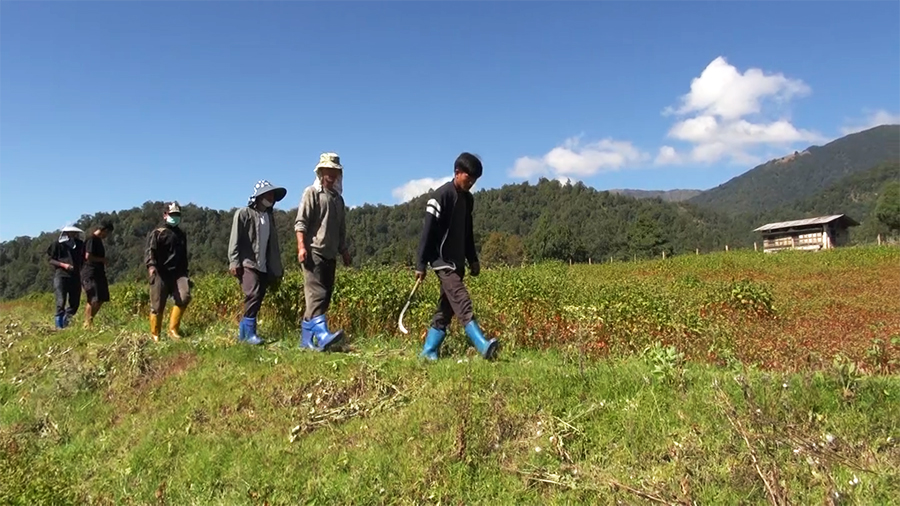
In Trashigang, a group of young people from Khaling Gewog has transformed 10 acres of unused land in Drewoong, aiming to bring back crops like buckwheat, barley, and mustard oil. However, the group says the potential harvest may not meet their expectations due to a lack of proper water supply.
 This flat area in Drewoong village, part of Khaling Gewog, has remained unused for over three decades.
This flat area in Drewoong village, part of Khaling Gewog, has remained unused for over three decades.
Nine members, mostly students who left school after the 12th grade, have been working hard to cultivate sweet buckwheat, bitter buckwheat, barley, and mustard oil on the 10-acre field for the most part of this year.
While the two types of buckwheat have flourished more than the other crops like barley and mustard oil, the youth are still not content with their production.
They have plans to grow vegetables in the summer and cereal crops in the winter, but they are concerned about water supply.
“During our work, we have realised the crucial role water plays in farming in this area. Cultivating without proper water supply has led to poor production. Additionally, the land has been unused for over a decade. Therefore, I strongly believe that water is essential, and without a proper water supply, growing crops here might not be possible,” said Tshering Dorji, a resident.
“We are in need of government support, especially since we have clay soil here, making ploughing challenging for both oxen and power tiller machines. What we require is a heavy tractor machine to effectively cultivate the land,” said Yeshi Wangchuk, another resident.
They have been using the drinking water supply for farming, but this has resulted in a shortage of drinking water for the villagers.
The Khaling Gup says that the gewog recently requested the district administration for a dedicated water supply for farming purposes and sought the expertise of soil fertility experts.
 The group invested about Nu 700,000 in land development, and a 1.5-kilometre electric fence was installed, supported by CARLEP and the budget from the gewog.
The group invested about Nu 700,000 in land development, and a 1.5-kilometre electric fence was installed, supported by CARLEP and the budget from the gewog.
Sonam Darjay, Trashigang
Edited by Sherub Dorji







